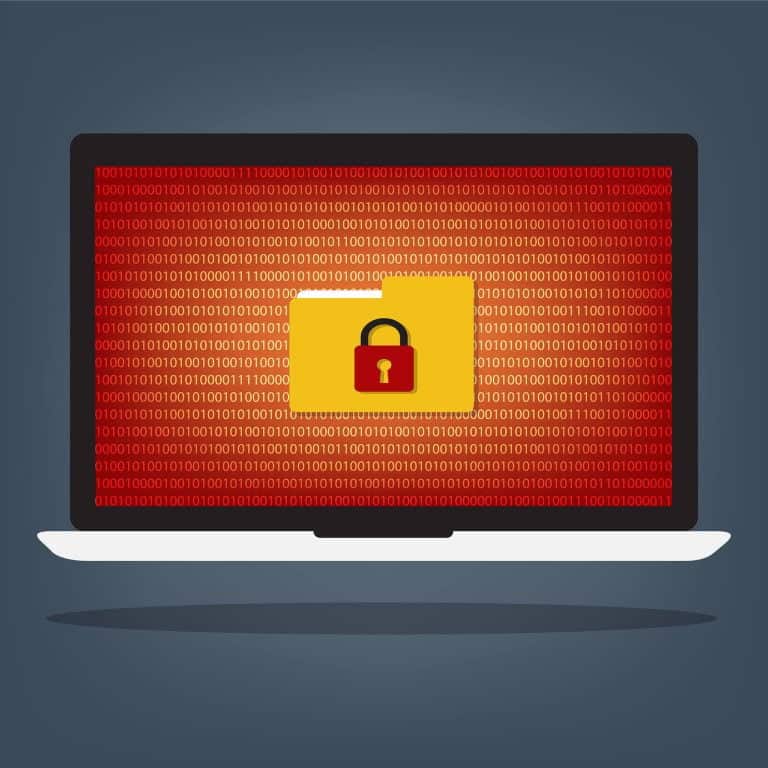Most small businesses assume cybersecurity training is only a concern for large organizations – and are more vulnerable to threats because they have more at their disposal.
Table of Contents
ToggleIn fact, 60% of small-business owners believe it’s unlikely cybercriminals will target them. However, contrary to popular belief, small businesses are more likely to be a target of cyber threats than large corporations.
The reason for this is simple. Large businesses have the resources and awareness to protect valuable data, train cybersecurity employees, and implement solutions to secure data assets.
Here are a few other reasons why small businesses make an attractive target for cybercriminals:
- Lack of cybersecurity training, budget, and expertise.
- Lack of cybersecurity specialists on the team.
- Implementation of security solutions is not always up-to-date.
- Lack of awareness, risk management policies, and procedures.
- Unsecured endpoints.
Plus, with the large shift to work-from-home settings, the dangers of security breaches multiply. Namely, more than 40% of WFH employees made errors resulting in cybersecurity repercussions for themselves or their company. Small businesses with any remote workforce are left particularly vulnerable.
With these factors in mind, let’s look at what cybersecurity training is and why you need it in your business.
What Is Cybersecurity Training?
Cybersecurity training brings awareness to employees about the importance of information security and security issues businesses can encounter. Companies can educate their employees about cybersecurity threats and reduce risks by using a range of learning techniques.
All employees at every level of your business should receive training, and it ensures they have the essential skills required to identify attacks. To ensure your staff understands the importance of their role in protecting sensitive business data, they must have an informative and engaging training program.
Most Abundant Varieties of Cyberattacks
Unfortunately, these common cyberattacks can leverage in-house employee accounts, making them some of the biggest risks when it comes to data breaches.
Phishing
Phishing occurs when a hacker attempts to make off with personal data such as:
- Email logins
- Credit card information
- Social Security numbers
- Phone numbers
During a phishing attack, the criminal will behave in a way intended to lower the person’s guard and manipulate them into performing a specific action. For example, your employee opens an email and clicks on a genuine-looking link. This attack tricks the user into providing personal information while downloading harmful content.
Ransomware
Ransomware is malicious software that’s downloaded onto an employee’s computer. This software is delivered as a legitimate-looking file arriving in an email attachment.
Essentially, the malware uses a virus to block users’ access to the blockaded files until they hand over the ransom amount.
Business Email Compromise Fraud
BEC (business email compromise) is a type of cyberattack criminals use to trick company employees into transferring money into their bank accounts. They typically make it more deceiving by hacking into the company’s email system and gaining information about its payment processes.
BCE can impact a business because cybercriminals often target employees who handle payroll, budget, and other financial matters.
Essential Reasons Why Your Business Needs Cybersecurity Training
Business office employees and IT professionals alike will benefit from specific, actionable training in cybersecurity. Here are six ways cybersecurity training benefits you, your business and your employees.
1. Attracts Talent
Small-business owners may find it difficult to attract talent. Many professionals today understand the importance of online privacy and security. If your employees find out your workplace is putting their personal data at risk, they may not wish to work for you.
Additionally, knowledgeable employers always seek highly trained candidates because cybersecurity is a crucial aspect of the business world. Nowadays, most companies conduct business using the internet. Cybersecurity training can entice technology-minded professionals.
2. Saves Your Business Money
The financial damage that occurs after a cyber-related incident can be detrimental and cost a fortune for your business. Small businesses that experience a cyberattack usually end up paying $84,000 to $148,000 and sometimes more. Therefore, investing in cybersecurity outweighs the costs of a data breach. Following a cyberattack, you risk other potential repercussions, including:
- Revenue loss
- Damaged reputation
- Client losses
- Theft of personal data and intellectual property
When you invest in cybersecurity training, you invest in your company’s future.
3. Ensures Your Business Is Compliant
Regulators are becoming more stringent by demanding industries implement cybersecurity training. Regardless of a business’s scale, non-compliance can be more costly than a compliant business targeted by a cybercriminal.
To be compliant, you must invest in cybersecurity solutions. Like a large corporation, small businesses must deal with technologies, data, and people – all of which can be cybercrime targets.
4. Builds Up Technological Defenses
Technological defenses are an invaluable tool for preventing breaches. You can ensure you’re assimilating tech defenses by turning on firewalls, acknowledging security threats, and updating your software.
Very few businesses today do not operate without technological defenses. They are aware of the risks. Yet, without cybersecurity training, their tech defenses wouldn’t be capable of fulfilling their potential.
Essentially, businesses become vulnerable to attackers because they see them as easy targets – and they’ll be sure to hack their way into an unprotected network.
5. Inspires Trust Among Customers
Savvy consumers are increasingly aware of cyber threats. If your business isn’t safe and secure, neither are your customers. As a result, you can lose trust with your clients and ultimately lose business if you experience a cyberattack.
Smart business leaders will take measures to improve their cybersecurity to gain customer loyalty. Suppose a company doesn’t follow safe security practices? In that case, customers may notice this and will always see you as a liability.
6. Builds Cybersecurity Culture
Unfortunately, many members of your organization may be unaware of cybersecurity and data protection implications. When concealing sensitive information, it goes beyond a creative password. As technology advances, hackers find more ways to access your information. So, having a comprehensive security plan can establish clear expectations for employees.
Cybersecurity training educates your team to recognize attacks, prevent cyber-related incidents, and respond to potential threats. When business leaders take these precautions, they ensure the confidentiality of sensitive data.
Protect Your Business, Employees and Customers
Cyberattacks can target companies of all sizes and are continuing to increase at an exponential rate. You risk losing data, sales, and customer relationships. However, you can ensure the safety of your business and personal data by implementing the best cybersecurity practices and training your employees.





